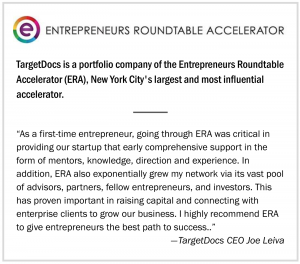Growing up in a Maryland construction family, Joe Leiva had mud on his workboots even before heading off to college for a civil engineering degree.
After returning to help with the family business, Joe saw firsthand how public works subcontractors were quickly buried by government red tape. Every contract required 20+ different forms, such as workforce demographics and daily reports, that were submitted throughout the course of a job. Worse yet, don’t follow the rules and you don’t get paid.
“I wanted to help these folks avoid compliance issues, to help shorten payment cycles because it’s so critical for these small businesses to meet payroll,” Joe said of his motivations on launching ProTrakr in 2015.
What got you here may not get you there
But the same industry knowledge gained from years of literally being in the trenches — “almost everything we did was underground” — also blinded Joe to what the market really needed, teaching him his first, hard lesson about building products: talk to customers frequently, even if you think you know what they’re going to say.
“We had a little bit of fire,” recalled Joe of ProTrakr’s early success, “so we just threw fuel on it without really taking a step back and questioning clients on what they really needed.”
But as growth leveled off for its project management suite — proving a complex sell to SMBs — a revelation appeared last year as several ProTrakr subcontractor customers were building Washington’s $5.6 billion Metro expansion.
A call came one day from an executive with the prime contractor coordinating the entire project. ProTrakr automated submission of work performance docs to the prime contractor for Joe’s sub customers, helping get their ducks in a row. But the prime had bigger worries.
“He told me, ‘How great it would be if all 200 of our subs were on your system, and I was just receiving data free-flowing in real time,’ ” Joe said. “That’s when the “aha!” moment came. I had always been looking at the problem from the eyes of the subs submitting to the primes, and I didn’t realize just how fragmented and disorganized it was for the larger companies.”
“We had to pump the brakes a bit and approach the bigger problem with a blank slate,” Joe said of a barnstorming effort to reset his team’s understanding of customer needs through dozens of interviews throughout the country.
The discovery journey quickly uncovered that subs and primes alike were relying solely on unsophisticated email and storage tools to keep track of the blizzard of required documents submitted on a regular basis.
ProTrakr already had the solution in hand, embedded in its larger platform. Launching a new, more targeted product meant carving out the document management module and giving it to all parties to serve as a centralized hub for all incoming file activities. 
Product changes were just the beginning
Pivot is too strong a word for the change; Joe prefers “focus shift, as we are focused on the same industry, but we zeroed in on a critical need and tweaked our solution to meet it.”
And there were other benefits, such as a 6x expansion of target market beyond public works contractors to any company working on government-funded construction projects that require intensive document exchange.
As part of the shift, Joe renamed the company to TargetDocs and grappled with how to market its narrowed capabilities, since their solution didn’t cleanly fit into existing product categories — “there’s no construction lingo for it.”
And while the prior platform required a high-touch sales and implementation approach, the lighter-weight product is mostly self-service and relies a wider array of acquisition methods. There remains an upsell path to the legacy product for subs needing more power, but the sales team is squarely focused on the file hub. All of which required Joe to retool how TargetDocs did business, which proceeded relatively smoothly once the strategy was clarified.
“Hopefully we’ve landed with this change,” Joe said, “but this has made us much smarter going forward in so many other ways.”
Other pointers from Joe learned from his early days
- Some of the best founders launch companies to solve problems they personally suffered through, but have the self-awareness and humility to know your experiences are simply one data point. “In my situation, being part of that industry gives you authenticity and gives you an emotional tie,” Joe said. “No way in hell would I have stumbled upon this coming from somewhere else. But even if you’re an expert in your field, try to take a step back to see the bigger picture.”
- Understanding customer needs should be paired with gathering detailed data on spending patterns by customer segment. Identify the dollars you’re going after, whether it’s from incumbents or harvesting unallocated budget associated with solving new problems. “And when you look at the data, you’ll also see your marketing strategy and playbook start to emerge,” Joe added.
- Always have an up-to-date model of your acquisition funnel, even if the data is sparse. As the TargetDocs looked at progression from lead to close on the original business, Joe said, “we started adding up the numbers, and it really didn’t make sense because it was too hard of a sell.” So when the new product signal came, TargetDocs quickly modeled how this would impact the funnel.
TargetDocs is a portfolio company of the Entrepreneurs Roundtable Accelerator (ERA), New York City’s largest and most influential accelerator that has guided nearly 200 US companies through their early stages with its impressive mentor and investor network.
